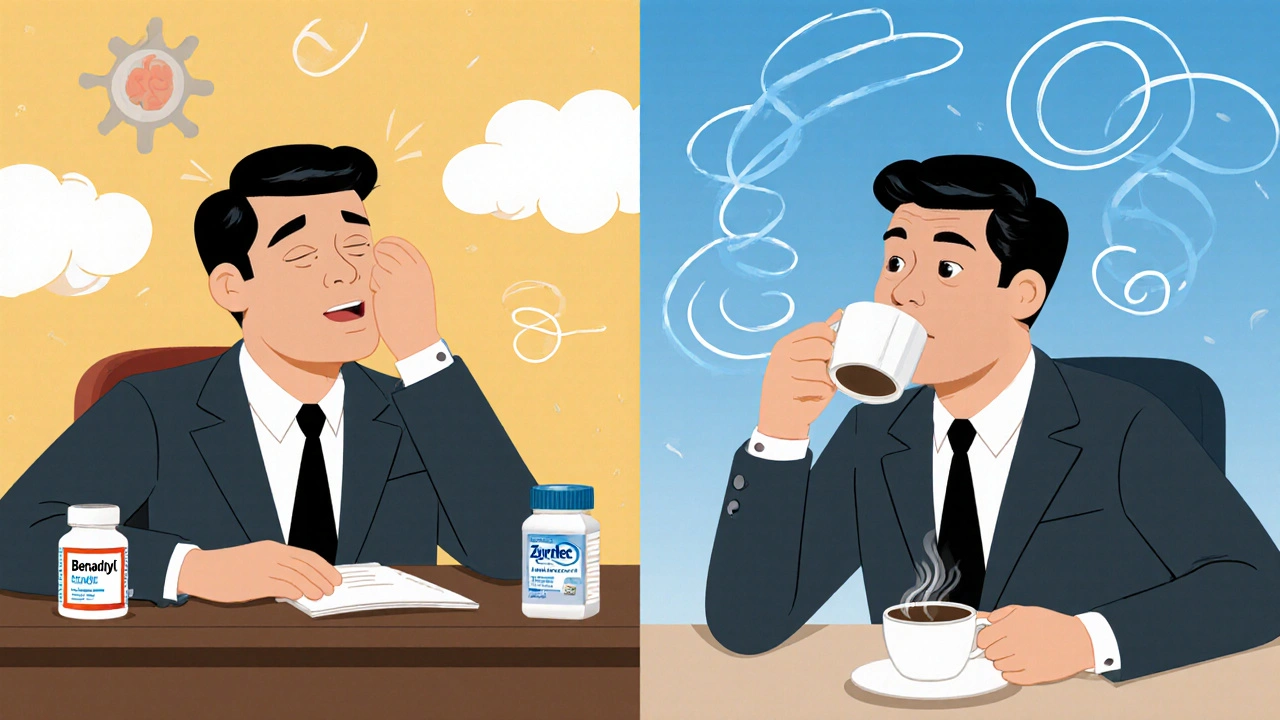Antihistamines: What They Are, How They Work, and What You Need to Know
When your nose runs, your eyes itch, or your skin breaks out in hives, it’s usually because your body is releasing histamine, a chemical your immune system releases during allergic reactions. Also known as allergy mediator, histamine triggers inflammation and discomfort — and antihistamines, medications designed to block histamine’s effects are the go-to fix for most people.
Antihistamines don’t cure allergies. They just quiet the noise. First-generation ones like diphenhydramine knock you out because they cross into your brain. Second-gen ones like loratadine or cetirizine barely touch your brain, so you stay alert. But even the "non-drowsy" kinds can cause dry mouth, constipation, or blurry vision — especially in older adults. And they don’t play nice with other meds. If you’re on a blood thinner, a heart pill, or even a sleep aid, mixing them with antihistamines can turn a simple fix into a health risk. That’s why tracking drug interactions matters — it’s not just about what you take, but what you take it with.
Antihistamines are also used for more than allergies. They help with motion sickness, nausea, and even insomnia — not because they treat the root cause, but because they calm overactive nerve signals. But using them long-term for sleep? That’s a trap. Your body gets used to it, and you end up needing more just to feel the same. And if you suddenly stop, you might get rebound symptoms worse than before. It’s like turning down a loud alarm with earplugs — you’re not fixing the alarm, you’re just muffling it.
What you’ll find in these posts isn’t just a list of brand names. It’s real talk about when antihistamines help, when they don’t, and when they might be doing more harm than good. You’ll see how they connect to other meds like blood thinners and antidepressants, how they affect older adults differently, and why some people need to avoid them entirely. There’s no fluff. Just what you need to know to use them safely — and when to ask your doctor for something else.
Antihistamines: First-Generation vs. Second-Generation Compared

Learn the key differences between first- and second-generation antihistamines - from how they work and their side effects to which one is better for daily use, sleep, or sudden allergies.
- November 20 2025
- Tony Newman
- 11 Comments
